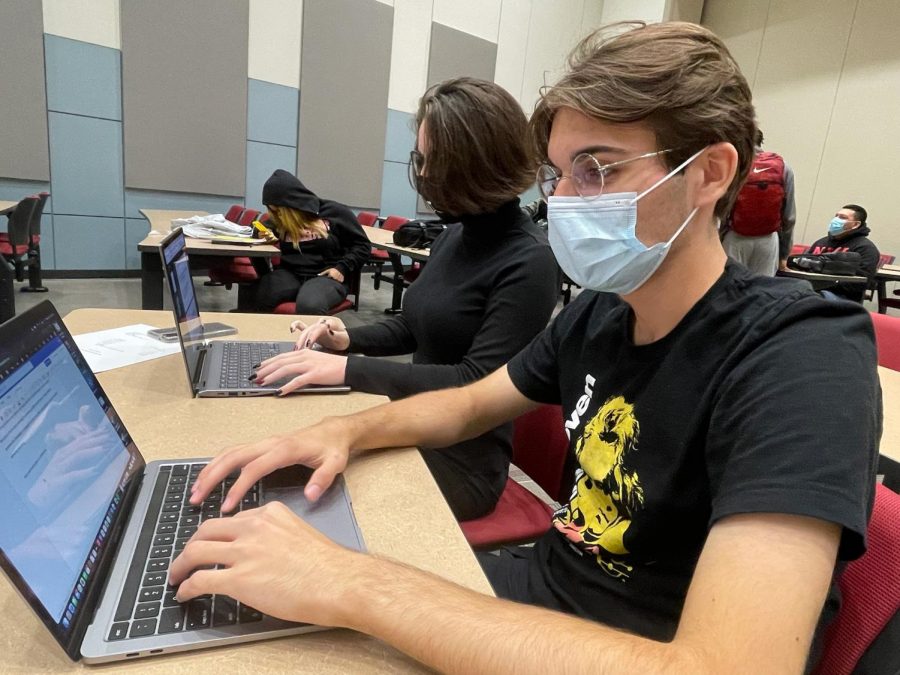Students should be more engaged in the classroom
October 7, 2021
There’s nothing worse than being in a classroom where very few students actively participate, and the teacher is just standing there, hoping that a student will answer their questions. While most students got comfortable looking at a screen to take classes last year, now that school is mostly in-person, students must go outside their comfort zones and take part in their classes instead of being vegetables at a desk.
Being an active student in class, like being part of classroom discussions, taking good notes, taking charge in group activities and answering questions, can help retain information as well as make students more likely to stay in school. A 2018 study by the National Survey of Student Engagement found that, from a sample of 17,000 first-year students from 75 schools, students who were more engaged in class were more likely to return for the next academic year.
The study also found that students who were more engaged in class were more persistent academically, leading to better grades.
“Although there is no clear-cut way to measure the impact of engagement on learning, we do know that students who actively engage in their learning retain far more and are able to apply content at a higher level than those who engage in more passive learning,” said Stephanie DeSpain, a College of Education professor.
Active participation can also enhance the classroom experience for students, especially if these classes are General Education courses that may fall outside students’ majors. While there is room for debate as to whether Gen. Eds are necessary, students ought to make the best of them since they’re still required by trying to be involved.
However, this is easier said than done. It’s incredibly difficult to get outside your comfort zone, especially if you know little to nothing about the subject you’re being taught. One possible solution could be to email your professors to see what it is they’re looking for in students as well as to accept that it’s okay to be wrong. It’s better to be wrong and then be told how you’re wrong than to not speak up.
Even more introverted students can find ways to be engaged by speaking to professors during office hours, taking diligent notes or working in smaller group settings like projects, DeSpain said. Building good academic relationships with other students, teaching assistants and professors can help improve engagement as well.
Plus, professors should, and many do understand that you don’t have all of the answers. That’s why you’re students.
One of the best things a professor can do to get students engaged is to offer interactive elements in class such as discussions or activities as well as survey students at the beginning of the semester what they respond well to, DeSpain said.
Going to college costs a spectacular amount of money, and students should look at going to school as an investment. They invest money and, in return, they receive an education. How much of an education they receive depends entirely on how many opportunities they take, how hard they work and how much they choose to engage with their professors and classmates. But, while engagement does lie primarily with students, professors have an obligation to help stimulate an active classroom and help students become the best versions of themselves.







